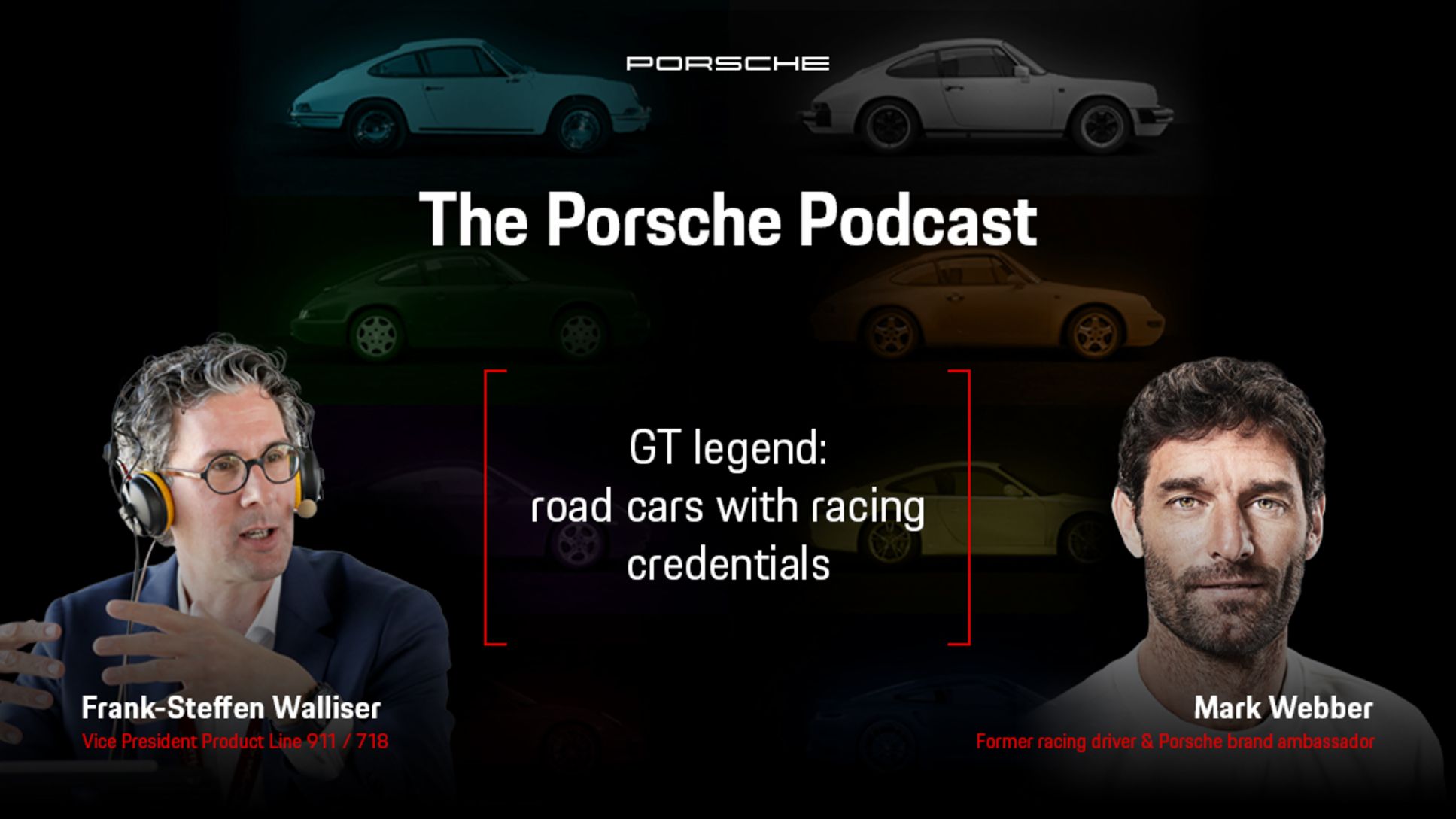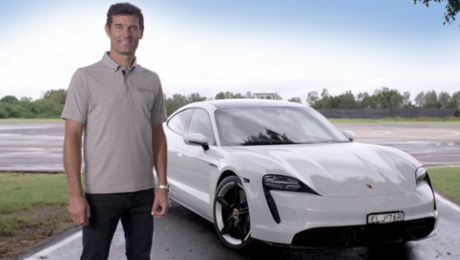Whether it's the 904 Carrera GTS, 914/6 GT, 911 GT2, 911 GT1, 911 GT3, Carrera GT or Cayman GT4, only very special Porsche vehicles get to feature ‘GT’ in their name. The abbreviation generally stands for ‘gran turismo’ and can loosely be translated as ‘great ride’ but at Porsche, the two letters also mean something else – racing with road approval. In the new episode of the podcast, Frank-Steffen Walliser – the man responsible for the 911 and 718 model series, including the GT cars – and former racing driver and Porsche brand ambassador Mark Webber get to the bottom of the GT legend.

A hot topic of conversation for the pair is the new 911 GT3, which lives up to Porsche's high GT claim with impressive lap times on the Nürburgring-Nordschleife, among other things. Fast laps have been Webber's job for years. "Sub seven minutes – it is just extraordinary how quick that lap time is," he says. "What racing drivers love is a brand that is not frightened of challenges. You put the car on the hardest track with the most difficult conditions and then put the stopwatch on. The stopwatch never lies.”
Technology transfer from motorsport to series production
In the podcast, Walliser delves into the technology transfer from motorsport to series production – and the team behind it. "GT within Porsche is not only the product,” he says. “It's not only the letters on the car: it's also the team and the spirit. It's a small group. It's an integral part of Porsche motorsport: where we have racing cars and road cars combined.”
With technology developing apace, what do Webber and Walliser think about the future of the GT legend? What could synthetic fuels and electrification mean for the two special letters? And what exactly distinguishes the sound of a naturally aspirated engine from a turbo? Tune in to the podcast for the answers.
Info
All Porsche podcasts can be found at newsroom.porsche.com/en/podcasts and on all podcast platforms.





